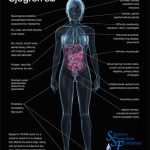April is Sjögren’s Awareness Month, a time for rheumatologists to help educate the public and themselves about Sjögren’s syndrome and its diagnosis. With newly published clinical practice guidelines, Nancy Carteron, MD, encourages rheumatologists to be first responders for this patient population…



